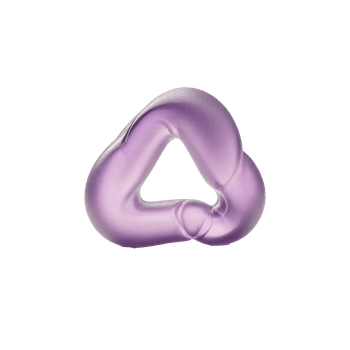Estrogen – important sex hormone for women's health
Estrogen is a hormone produced mainly in the ovaries of women. It affects many important functions in the body, such as:
- Reproductive health: Estrogen plays a central role in the development of reproductive organs and regulates the menstrual cycle.
- Bone health: The hormone helps maintain bone strength by promoting the absorption of calcium and reducing the risk of osteoporosis.
- Cardiovascular health: Estrogen has a protective effect on the cardiovascular system by regulating cholesterol levels and maintaining healthy blood vessels.
- Vaginal health: Estrogen is important for maintaining healthy vaginal tissue and moisture.
This is how we women are affected by low estrogen levels
Low levels of estrogen can lead to various health problems and unpleasant symptoms:
- Osteoporosis: Estrogen deficiency can increase the risk of osteoporosis and fractures due to reduced bone mass.
- Vaginal dryness: Decreased estrogen production can lead to dry and fragile mucous membranes in the vagina, which can cause discomfort and pain.
- Decreased sexual desire: Low estrogen levels can affect libido and interest in sexual activity.
- Skin changes: Estrogen helps maintain skin elasticity and moisture. Estrogen deficiency can lead to dry skin and an increased risk of early wrinkles.
- Hot flashes and night sweats: Many women experience these symptoms in conjunction with menopause, when estrogen production decreases.
- Sleep disorders: Estrogen deficiency can affect sleep and cause difficulty falling asleep or staying asleep through the night.
- Irregular periods: One of the early indications of estrogen deficiency may be irregular or absent periods.
- Mood swings and irritability: Low estrogen levels can affect mood and cause feelings of low mood, irritability or anxiety.
- Fatigue: Estrogen deficiency can lead to fatigue and a feeling of exhaustion.
This is how estrogen deficiency is treated
If you suspect estrogen deficiency or experience symptoms that may indicate this condition, it may be useful to consult a doctor and carry out hormonal tests such as measuring your levels of estrogen by blood sample. Depending on the results, there are different treatment options that your doctor can help you with.
Treatment options for estrogen deficiency- Hormone replacement therapy (HRT): The doctor may recommend HRT to compensate for the estrogen deficiency and relieve the symptoms.
- Lifestyle changes: Healthy lifestyle habits, such as regular exercise and a balanced diet, can help manage estrogen deficiency.
- Topical estrogen products: Vaginal creams, rings, or tablets containing estrogen can be used to treat vaginal dryness.
- Natural relief: For some women, herbal supplements or other natural methods may offer relief from some symptoms.
If you have an estrogen deficiency, it is important that you seek the help of a doctor so that you receive the right treatment.
Estrogen deficiency is a condition that affects women's health and well-being. By being aware of symptoms and seeking medical help, you can get the right diagnosis and treatment to deal with estrogen deficiency effectively.






















